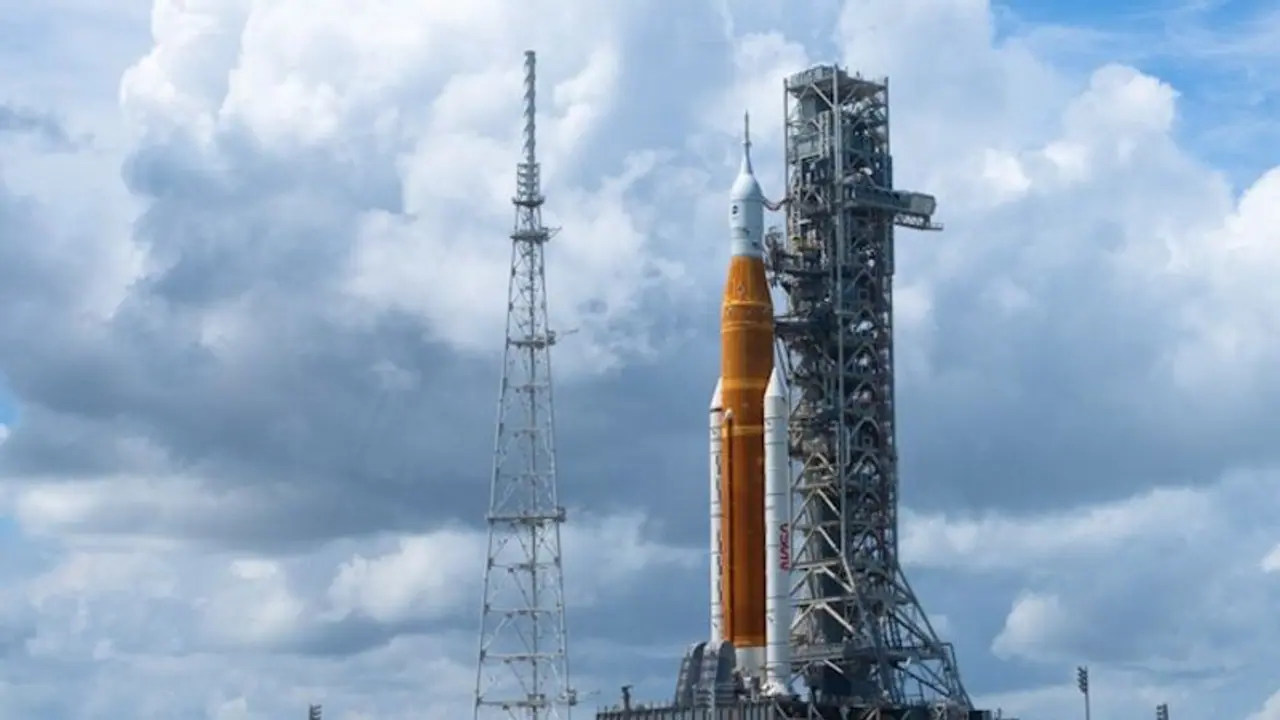It would be the third time NASA has attempted to send the Orion crew capsule, without any people aboard, in orbit around the moon, as part of a campaign, known as the Artemis program, to return astronauts to the lunar surface. Two previous launch efforts were postponed because of mechanical issues.
After Florida was devastated by tropical storm Nicole, NASA has given the go-ahead for the third attempt to launch the Artemis mission to the Moon. On November 16, the American space agency will try to launch the challenging mission for a journey to the Moon during a two-hour launch window.

On Wednesday at 11:34 a.m. (IST), launchpad 39B at Cape Canaveral is slated to witness the launch of the Space Launch System (SLS) rocket and Orion spacecraft for the first time in an integrated flight test. The mission management team gathered late on Sunday to assess the mission's preparations and to approve the mission's launch.
Also Read | Out-of-control Chinese rocket debris crashes in the Pacific Ocean
According to NASA, engineers will thoroughly examine several feet of delaminated caulk where the ogive on Orion's launch abort system. "The team will meet again Monday afternoon to review additional analysis associated with caulk on Orion's launch abort system that came loose during Hurricane Nicole," the space agency said.
Engineers will also remove and replace a component of an electrical connector on the hydrogen tail service mast umbilical ground-side plate. Even after repairing the connector's connection earlier in the week, NASA claimed that engineers still occasionally encounter data that is incorrect.
Also Read | China to send monkeys into space to study zero-gravity reproduction: Report
As of right now, nothing is stopping us from trying to launch on Wednesday, according to Jim Free, associate administrator for NASA.
The 322-foot (98-meter) rocket is the most powerful one that NASA has ever created. The first such mission since the Apollo astronauts last landed on the moon fifty years ago, will send a crew capsule atop a rocket toward the moon with three test dummies on board.
Before sending people on board in 2024 for a voyage around the moon, NASA needs to test every system. Fuel leaks prevented two earlier launches that were attempted in the late summer. The end of September saw a return to the hangar due to Hurricane Ian as well.
Also Read | In a first, UK scientists infuse lab-grown blood cells into humans
